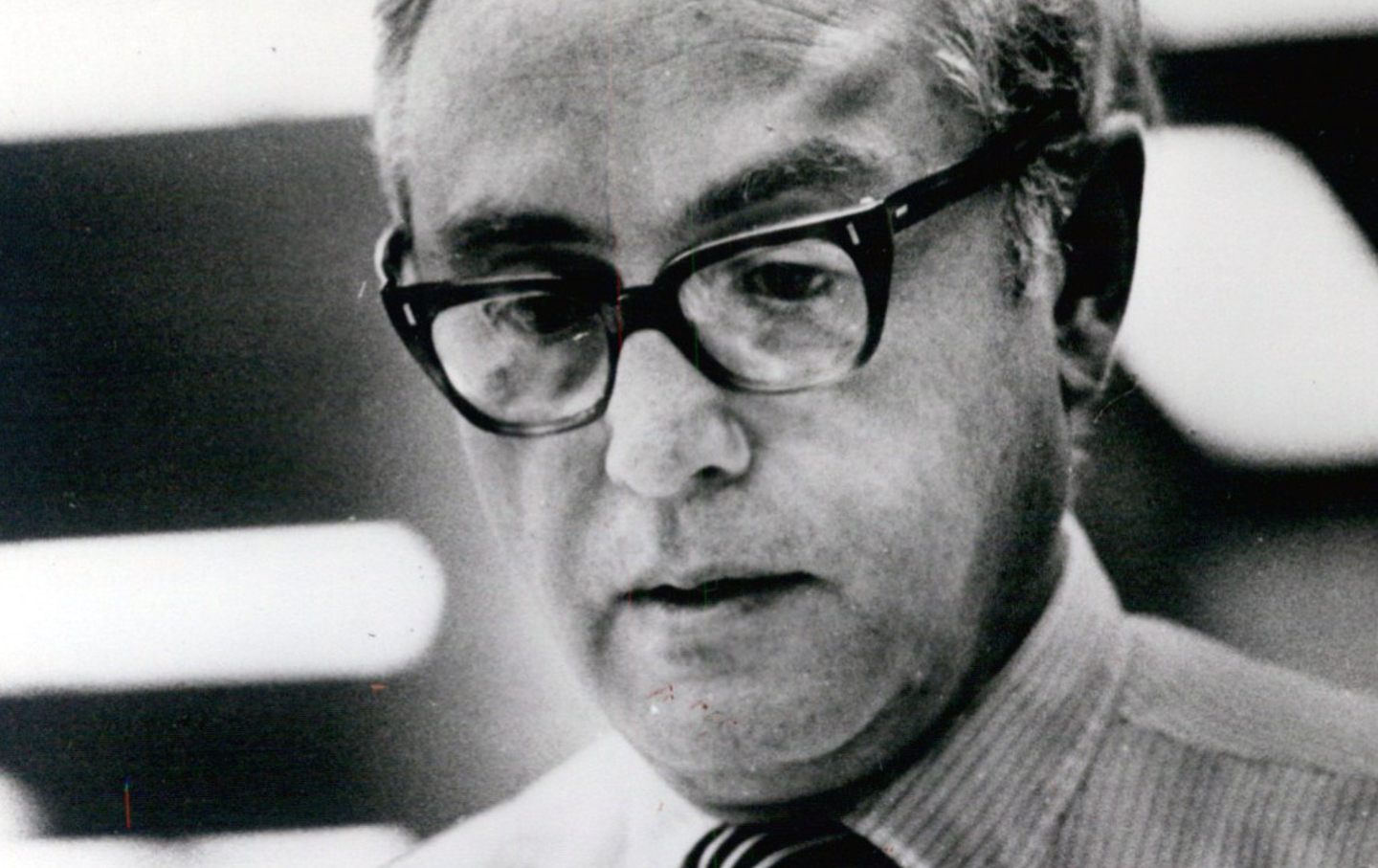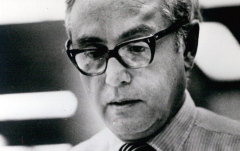Obituary
/
August 7, 2025
A probing, formidable reporter, Mintz broke major stories on corporate crime and fraud in the consumer, environmental, and workplace arenas.

The journalistic career of Washington Post reporter Morton Mintz spanned the years 1958 to 1988 and reveals how starkly different his superior standards and focus on corporate wrongdoing were from today’s Internet-afflicted media environment.
This quiet, persistent, probing, formidable reporter was guided by his repeated question: “What’s important?” This simple yardstick led him to break open major areas of corporate crime, violence, and fraud—in the consumer, environment, and workplace—that many reporters then began to pursue.
Morton chose to be a “beat reporter,” not a feature writer of the sort that has steered so many of our major newspapers toward magazine-type formats that sacrifice hard news.
Being a “beat reporter” meant that he coveted oversight and investigative deficiencies when it came to the Congress, regulatory agencies, and the courts. To achieve this laborious objective, Mintz dug into transcripts of congressional hearings, court records, and the regulatory agency proceedings. He conducted interviews to get deep into the facts.
Mintz’s work ethic also led him to cover activism and lobbying by citizen groups and heroic, unknown whistleblowers. Unlike the media’s censorious exclusion of what citizen groups are doing today, he saw this foundational community turning knowledge into action, into safety and health legislation and into court and regulatory victories for the common folk. His many exposés of the drug, medical device, automobile, asbestos, and tobacco industries, and more, did not satisfy him. He knew the importance of subsequent follow-up reporting on his previous stories, to not only enlighten readers but also to save their lives, protect their safety, and prevent rip-offs by corporations peddling useless, harmful drugs, and other products.
A Morton Mintz story was not going away, and motivated lawmakers knew that he would keep following up. It led them to launch inquiries and hearings, and to listen to the citizen advocates whose legislative proposals often became law.
Current Issue

Mintz kept listening, as well. At lunch with Morton when he was 95, I recall his utter astonishment at being informed that most Washington Post reporters, like others in the mass media, do not return telephone calls or respond to e-mails to receive scoops, leads, and reactions the way he invariably did.
Mintz maintained wide-ranging involvement with his sources, members of Congress, regulators, and advocates in order to fortify his professional standards of independence and probity. He quietly but firmly resisted quaking editors and ignored pressures from corporate lawyers, such as Lloyd Cutler, who represented corporate interests and advertisers.
Mintz paid close attention to young reporters and interns. Sari Horwitz, a multiple Pulitzer Prize winner at the Post, recalled that on her first day as an intern in 1984, where her desk next to Mintz’s, he gave her a binder full of suggested stor





